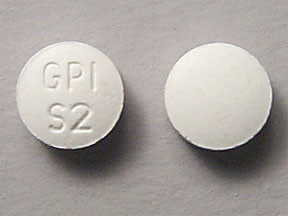CALCIUM CARBONATE ANTACID - ORAL
PHONETIC PRONUNCIATION: (KAL-see-um KAR-bo-nate)
COMMON BRAND NAME(S): Rolaids, Titralac, Tums
GENERIC NAME(S): calcium carbonate
Uses
USES: This medication is used to treat symptoms caused by too much stomach acid such as heartburn, upset stomach, or indigestion. It is an antacid that works by lowering the amount of acid in the stomach. Check the ingredients on the label even if you have used the product before. The manufacturer may have changed the ingredients. Also, products with similar names may contain different ingredients meant for different purposes. Taking the wrong product could harm you.
How to use CALCIUM CARBONATE ANTACID - ORAL
HOW TO USE: Take this product by mouth as directed. For the chewable form, chew the medication well before swallowing. For the liquid form, shake the bottle well before each dose. Follow all directions on the product package. Do not take more than the maximum recommended dose stated on the product package. If you are uncertain about any of the information, consult your doctor or pharmacist. Tell your doctor if your condition persists or worsens. Do not take the maximum dose of the medication for more than 2 weeks unless directed by your doctor. If you think you may have a serious medical problem, seek immediate medical attention.
Side Effects
Precautions
Interactions
Overdose
Images
Reviews
Faq for CALCIUM CARBONATE ANTACID - ORAL
- Calcium carbonate antacid is a medication used to relieve symptoms of heartburn, indigestion, and upset stomach caused by excess stomach acid. - It works by neutralizing the acid in the stomach.
- Calcium carbonate neutralizes stomach acid by reacting with it to form carbon dioxide and water, which helps to relieve symptoms of heartburn and indigestion.
- Calcium carbonate antacid is commonly used to treat heartburn, indigestion, and upset stomach caused by excessive stomach acid.
- Follow the instructions provided by your healthcare provider or the product label. It is typically taken orally with or without food. - Chewable tablets should be chewed thoroughly before swallowing, while regular tablets can be swallowed whole with water. - Do not take more than the recommended dosage unless directed by a healthcare professional.
- Common side effects may include constipation, gas, or belching. - Some individuals may experience allergic reactions such as rash, itching, swelling, severe dizziness, or trouble breathing. Seek medical attention if you experience any severe side effects.
- Calcium carbonate can interact with various medications, including antibiotics, iron supplements, certain blood pressure medications, and others. - It is important to inform your healthcare provider about all the medications you are taking before starting calcium carbonate antacid to avoid any potential interactions.
- It is generally considered safe to use calcium carbonate antacid during pregnancy and breastfeeding. - However, it is advisable to consult with a healthcare provider before using any medication during pregnancy or while breastfeeding.
- Calcium carbonate antacid usually starts working within 5 minutes of ingestion, providing relief from symptoms of heartburn and indigestion. - However, individual response may vary.
- Calcium carbonate antacid is generally safe for short-term use to alleviate symptoms of heartburn and indigestion. - However, prolonged and frequent use may lead to electrolyte imbalances or other complications. Consult with a healthcare provider if you need to use it for an extended period.
Disclaimer
IMPORTANT: HOW TO USE THIS INFORMATION: This is a summary and does NOT have all possible information about this product. This information does not assure that this product is safe, effective, or appropriate for you. This information is not individual medical advice and does not substitute for the advice of your health care professional. Always ask your health care professional for complete information about this product and your specific health needs.


No Reviews Yet